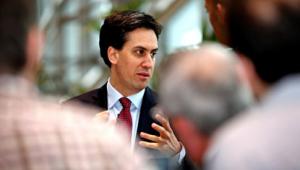By Vivienne Russell | 30 November 2012
Chancellor George Osborne should use next week’s Autumn Statement to freeze spending on public sector pay, benefits and international aid and ignore calls to extend wealth taxes, the Centre for Policy Studies has recommended.
 The think-tank today published a briefing note in which they urged the chancellor to set out a clear path towards reducing government spending to 38% of gross domestic product within the next four years.
The think-tank today published a briefing note in which they urged the chancellor to set out a clear path towards reducing government spending to 38% of gross domestic product within the next four years.The target to spend 0.7% of GDP on aid has ‘no economic rationale’, the CPS said, and should be ditched. With the exception of the state pension, all inflation-linked benefit rises should be cancelled.
Guidance on public sector pay restraint should also be published, the think-tank said. Implementation of the pay freeze had been interpreted very differently, it claimed, with some departments hampered by contractual obligations regarding pay scales.
With public sector pay levels continuing to outstrip those in the private sector, the CPS said it was likely that the government would want to extend the pay freeze.
‘To ensure this brings the planned savings, the coalition must set a clear cross-government framework for how a freeze should be interpreted at a departmental level,’ it said.
On tax, the CPS recommended merging income tax with National Insurance and reducing the main rate of capital gains tax. The chancellor should ‘avoid’ the introduction of new council tax bands or any other ‘punitive’ wealth taxes.
Measures to liberalise the supply-side of the economy should also be pursued, with further deregulation for small businesses and employment law.
Ryan Bourne, head of economic research at the CPS, said it was now clear that assumptions about the potential underlying growth of the economy and strength of tax revenues had been over-optimistic.
He added: ‘It is now likely the government will miss its net debt target on unchanged policies. The particular rule in itself is relatively unimportant. What really matters is that the coalition remains committed to getting our debt burden on a downward path.’
CPS director Tim Knox said: ‘The chancellor has a choice: will he put the long-term economic health of the country above the temptations of short-term political gain? If he tweaks the numbers to meet his rules and if he announces a wide range of policy initiatives which might grab a few headlines, then we will know that this is a statement inspired more by politics than economics.
‘What would be preferable is the recognition that the current fiscal pressures and long-term demographic trends require a great reduction in government activity and coherent simplification of our dysfunctional tax system.’





















